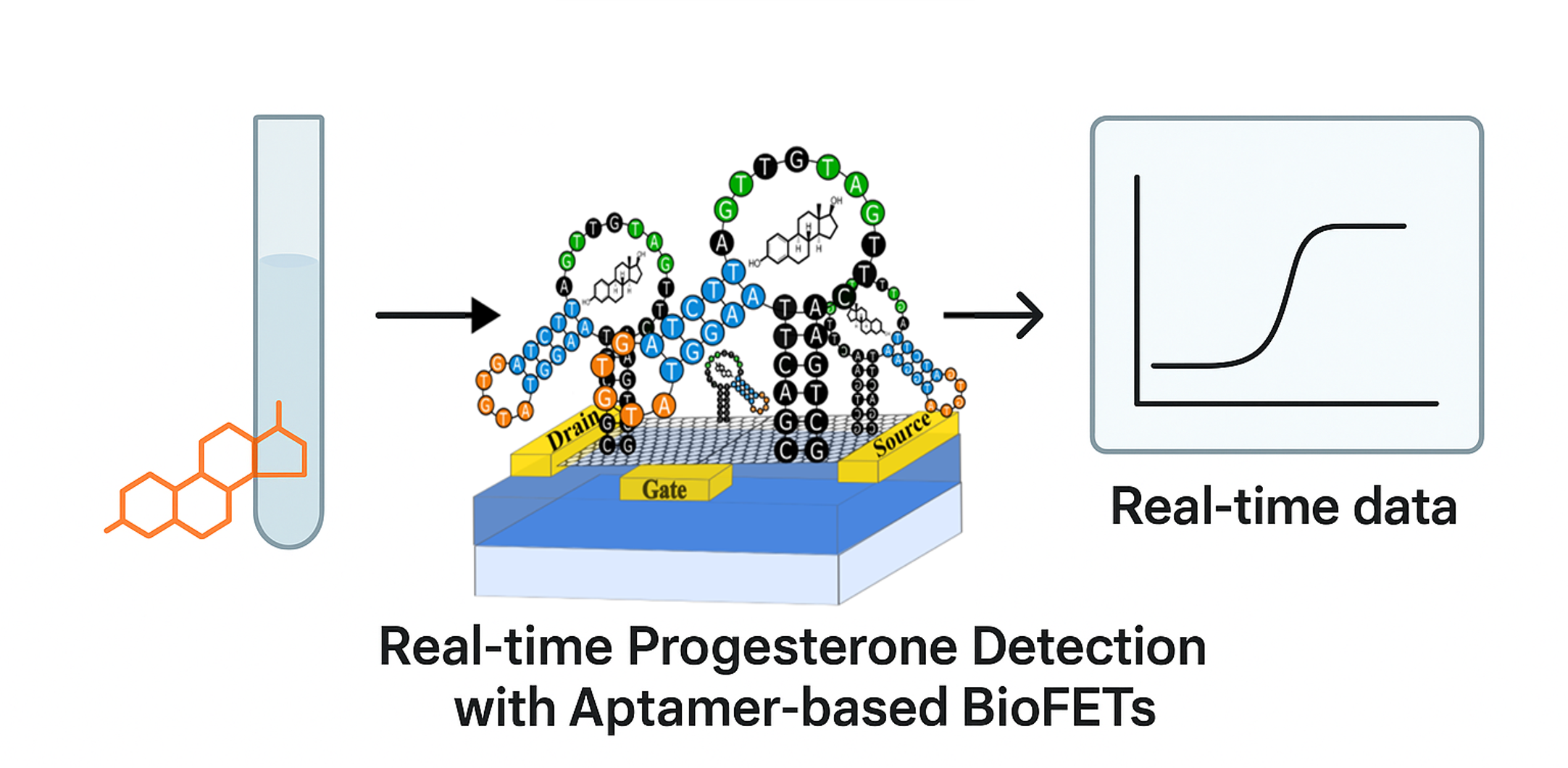
Real-time monitoring of reproductive hormones is an important requirement for advancing personalized healthcare and fertility diagnostics. Progesterone, in particular, plays a key role in reproductive health, but its reliable detection in physiological conditions remains challenging. Conventional assays are accurate but invasive, slow, and unsuitable for continuous monitoring or point-of-care applications.
This thesis will focus on the development and optimization of aptamer-functionalized Field-Effect Transistor (BioFET) biosensors for the sensitive and selective detection of progesterone. BioFETs offer high sensitivity and can be tailored for hormone recognition through flexible surface chemistry, making them a promising platform for future real-time hormone monitoring.
The work will involve:
Surface functionalization of BioFET sensors with progesterone-specific aptamers
Electrical characterization of sensor response in buffer and biofluid samples
Evaluation of selectivity against other reproductive hormones (e.g., estradiol, testosterone)
optional: Application of machine learning techniques to improve signal interpretation and prediction accuracy
An independent and interdisciplinary work style is expected, along with strong interest in working at the interface of nanotechnology, bioelectronics, and data science.
Starting date: ASAP

Real-time monitoring of reproductive hormones is an important requirement for advancing personalized healthcare and fertility diagnostics. Progesterone, in particular, plays a key role in reproductive health, but its reliable detection in physiological conditions remains challenging. Conventional assays are accurate but invasive, slow, and unsuitable for continuous monitoring or point-of-care applications.
This thesis will focus on the development and optimization of aptamer-functionalized Field-Effect Transistor (BioFET) biosensors for the sensitive and selective detection of progesterone. BioFETs offer high sensitivity and can be tailored for hormone recognition through flexible surface chemistry, making them a promising platform for future real-time hormone monitoring.
The work will involve:
Surface functionalization of BioFET sensors with progesterone-specific aptamers
Electrical characterization of sensor response in buffer and biofluid samples
Evaluation of selectivity against other reproductive hormones (e.g., estradiol, testosterone)
optional: Application of machine learning techniques to improve signal interpretation and prediction accuracy
An independent and interdisciplinary work style is expected, along with strong interest in working at the interface of nanotechnology, bioelectronics, and data science.
Starting date: ASAP